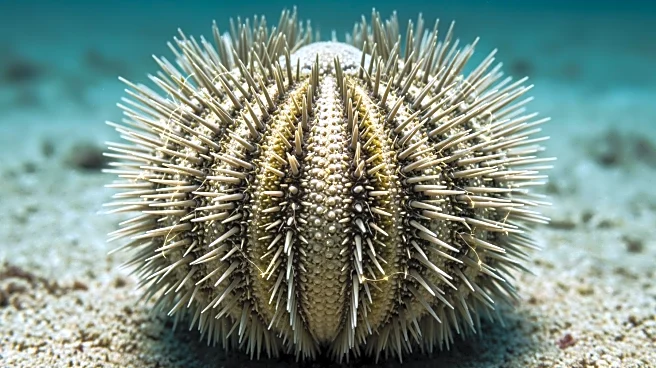What's Happening?
Recent research has uncovered that sea urchins possess a complex nervous system, contrary to the previous belief that they have simple decentralized nerve nets. The study, led by developmental biologist Periklis Paganos, found that the nervous system of
purple sea urchins is integrated throughout their entire body, functioning as an 'all-brain' system. This discovery was made while investigating the metamorphosis of sea urchins from larvae to adults, revealing a diverse array of neuronal cell types expressing molecular signatures such as dopamine and serotonin. The findings suggest that sea urchins have a sophisticated nervous system akin to a vertebrate head, fundamentally changing the understanding of echinoderm central nervous systems.
Why It's Important?
The revelation of sea urchins having complex nervous systems challenges long-standing assumptions about echinoderm biology and evolution. This discovery could have significant implications for the study of nervous system evolution, providing insights into how complex neural structures can develop without a centralized brain. It may also influence future research in developmental biology and neurobiology, as scientists explore the genetic and molecular mechanisms underlying this complexity. Understanding these systems could lead to advancements in biotechnology and medicine, particularly in areas related to neural regeneration and repair.

















